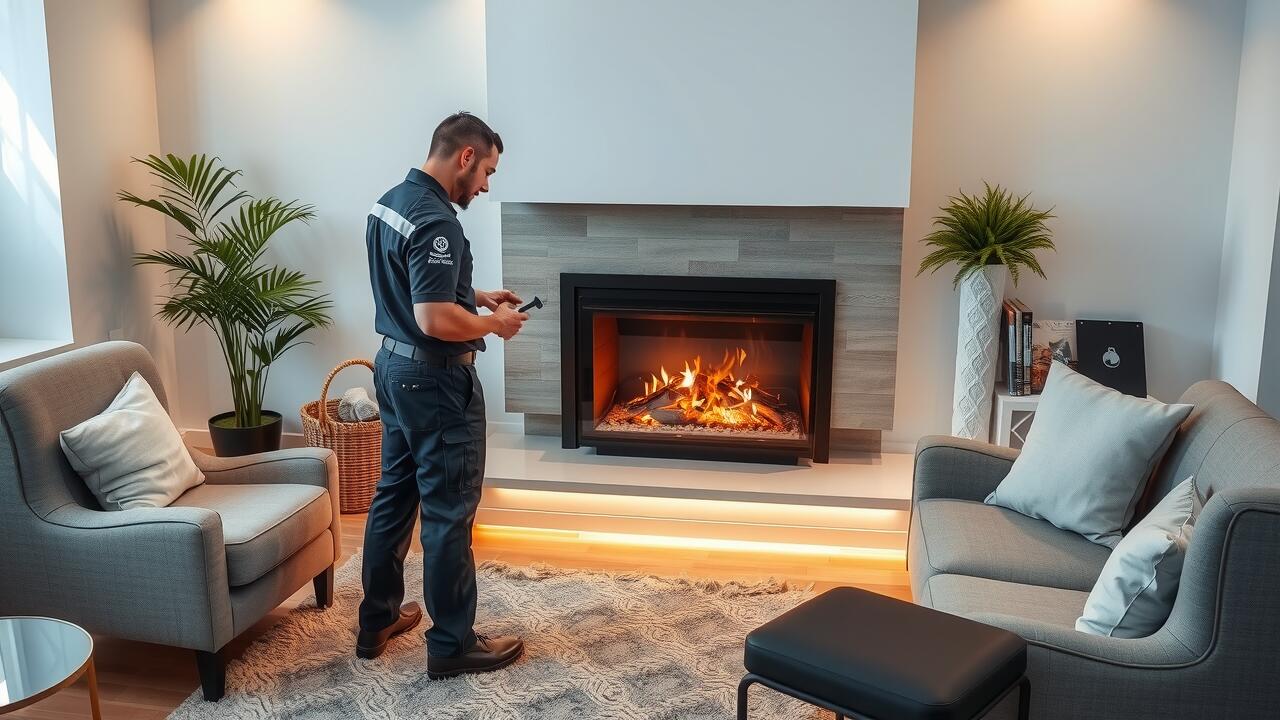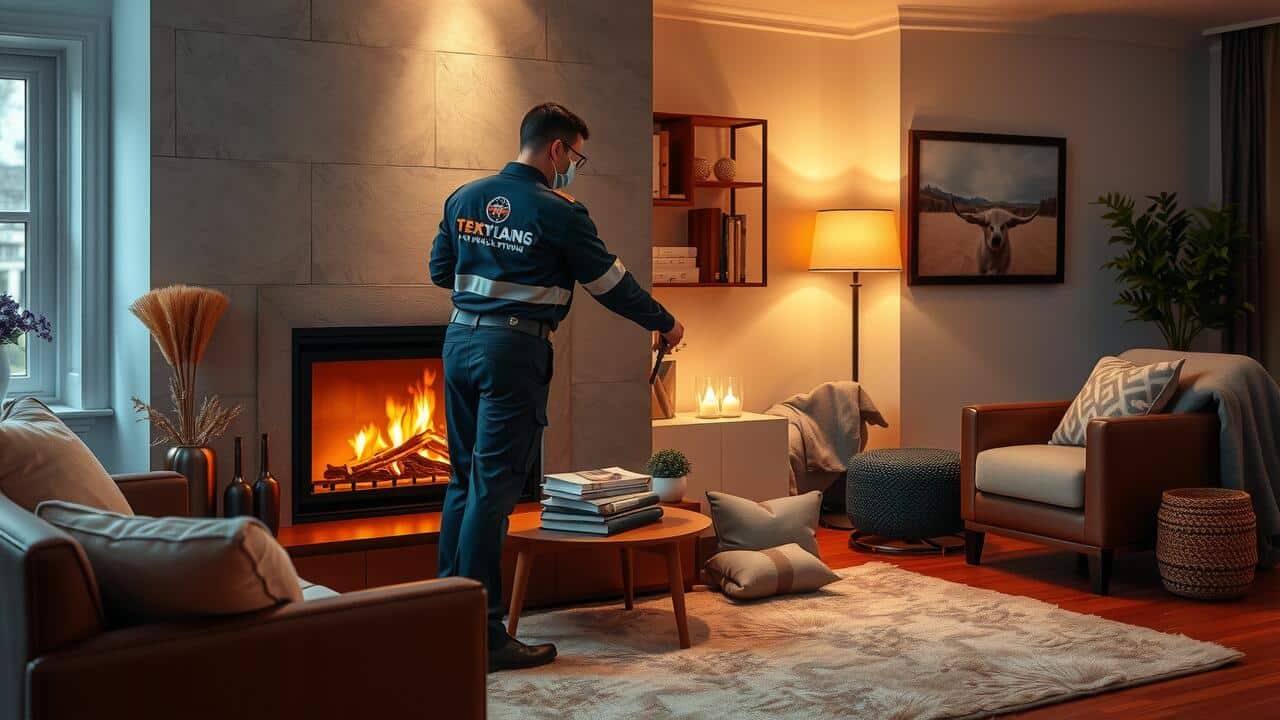Table Of Contents
What a Typical Service Involves
Gas fireplace services typically encompass a thorough inspection and cleaning of the appliance to ensure optimal performance and safety. Technicians begin by examining all visible components, checking for any signs of wear or damage that could compromise the fireplace’s function. The burner and ignition system receive special attention since they are crucial for safe and reliable operation. Cleaning these elements helps prevent malfunctions and promotes efficient burning.
Additionally, a gas leak test is a critical component of the service, ensuring that there are no hazardous leaks in the system. Technicians may also check the venting system to confirm that it is free of obstructions, which is essential for proper ventilation. Any necessary repairs or adjustments are addressed during the service to maintain the fireplace’s efficiency. Regular gas fireplace services not only enhance the unit’s longevity but also provide peace of mind for homeowners using these fixtures during colder months.
Key Steps in the Maintenance Process
Gas Fireplace Services typically begin with a thorough inspection of the unit. Technicians evaluate all visible components, looking for signs of wear or damage. They check the burner assembly and ensure that there is no buildup of debris that could affect the performance. Any issues found during the inspection could potentially lead to inefficient operation or safety hazards if left unaddressed.
Following the inspection, the next step involves cleaning the fireplace. This includes removing dirt and soot from the logs, burner, and other critical components. The technician will also assess the venting system to ensure that it is clear and functioning properly. Proper maintenance helps to enhance the fireplace’s efficiency and prolong its lifespan, making regular servicing an essential aspect of ownership.
Understanding Gas Fireplace Components
Gas fireplaces are composed of several essential components that work together to ensure efficient operation and safety. The primary parts include the burner, logs, and venting system. The burner is crucial for producing the flame, while the logs provide both aesthetic appeal and serve as a heat conductor. Additionally, the venting system ensures that harmful gases are expelled from your home, making it an integral part of the fireplace’s design.
Regular maintenance allows homeowners to keep these components in optimal condition. During gas fireplace services, technicians will inspect and clean the burner to prevent blockages that could affect performance. They will also examine the logs for any signs of wear and ensure that the venting system is functioning properly. Understanding these components helps homeowners appreciate the importance of scheduled maintenance for their gas fireplaces.
Parts That Require Attention During Service
Several components of a gas fireplace need careful inspection during routine maintenance. The burner should be checked for any signs of wear or buildup that could affect combustion efficiency. Additionally, the pilot light assembly and thermocouple require attention, as they play critical roles in the ignition process and safety. Proper functioning of these parts ensures that the fireplace operates smoothly and safely.
Ventilation components also deserve a thorough examination. The venting system must be clear of obstructions to allow proper gas flow and to prevent carbon monoxide buildup. Gas Fireplace Services typically examine the gas line connections for leaks, tightening fittings as needed. Ensuring each of these parts is in optimal condition is essential for the fireplace’s longevity and safe operation.
Seasonal Considerations for Gas Fireplace Maintenance
Preparing your gas fireplace for the colder months is essential to ensure it operates efficiently and safely. Before winter sets in, it’s advisable to schedule Gas Fireplace Services to have a professional inspect and clean the unit. This process often includes checking for gas leaks, ensuring proper ventilation, and cleaning burners and logs. A thorough assessment helps prevent issues that could arise during heavy usage in winter.
In addition to professional servicing, homeowners should take a few proactive steps themselves. Keeping the area around the fireplace clear of debris and ensuring proper airflow can enhance performance. It is also vital to check the pilot light and overall function of the ignition system prior to the heating season. Regular attention to these details can help maintain the gas fireplace’s reliability over the months when it will be used most.
Preparing Your Fireplace for Cold Weather
As the cold weather approaches, proper preparation of your gas fireplace ensures optimal performance and safety. Inspecting the unit for any signs of wear or damage becomes crucial before the first use of the season. A thorough cleaning can help remove dust and debris, which might have accumulated during the warmer months. Staying on top of maintenance prevents potential issues and guarantees a cozy environment when temperatures drop.
Engaging professional help for Gas Fireplace Services can provide peace of mind. These experts can assess components like venting systems and burners, ensuring everything is functioning correctly. Scheduling regular service not only enhances the efficiency of your fireplace but also extends its lifespan, allowing you to enjoy its warmth for years to come.
FAQS
How often should I have my gas fireplace serviced?
It is generally recommended to have your gas fireplace serviced annually to ensure it operates safely and efficiently.
What are the signs that my gas fireplace needs servicing?
Common signs include unusual smells, inconsistent flames, strange noises, or if the pilot light frequently goes out. If you notice any of these issues, it’s best to schedule a service.
Can I perform maintenance on my gas fireplace myself?
While some basic tasks, like cleaning the glass and checking for debris, can be performed by homeowners, it’s best to have a professional handle the in-depth servicing to ensure safety and compliance with local codes.
What does a professional gas fireplace service include?
A professional service typically involves inspecting and cleaning the burner, checking gas connections, assessing the venting system, and ensuring all components are functioning properly.
Is it necessary to service my gas fireplace during the off-season?
While it’s not strictly necessary, scheduling maintenance during the off-season can ensure your fireplace is in optimal condition when you need it most, and it can help identify any issues before the cold weather sets in.

